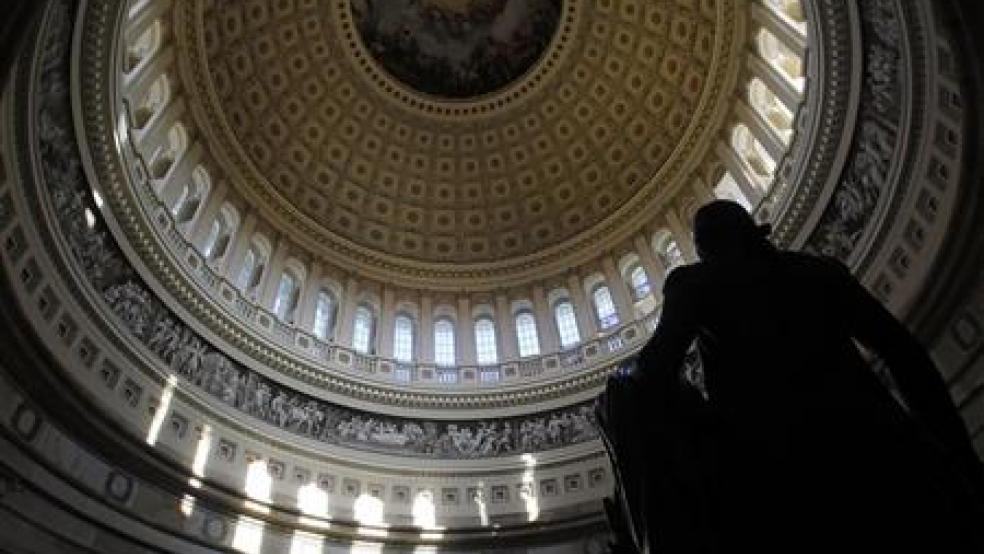Congressional leaders and the White House have reportedly agreed to permanently repeal three taxes created under the Affordable Care Act as part of their year-end deal detailing nearly $1.4 trillion in spending for fiscal year 2020.
What’s in the deal: The spending legislation includes $738 billion in military funding, a $22 billion increase compared to fiscal 2019, and $632 billion in non-defense spending, a $27 billion increase.
The deal would eliminate Obamacare’s 2.3% medical device tax and its so-called Cadillac Tax on high-cost health insurance plans as well as a fee imposed on health insurers under the 2010 law. Those taxes, intended to help pay for the Affordable Care Act and its expansion of health care coverage, have been widely unpopular among both Republicans and Democrats since they were introduced.
The Cadillac Tax, meant to incentivize employers to drive down the cost of their health plans, was opposed by both business and labor groups. With those forces lined up against it, Congress delayed the tax until 2022. It also suspended the medical device tax for 2016 and 2017 and had similarly rolled back the health insurance tax for 2017 and 2019. Now lawmakers looking to permanently eliminate those taxes appear to have won out — and the mechanisms through which Obamacare was supposed to pay for itself will largely be gutted.
House and Senate negotiators have reportedly also agreed to renew a slew of expired “tax extenders” or temporary breaks, but the ultimate fate of those extenders wasn’t clear by Monday evening.
Why it matters: “The repeal of the three taxes represents an expensive windfall victory for the health care industry, which lobbied intensely against all three taxes since they were first mandated by the Affordable Care Act,” Politico’s Susannah Luthi and Caitlin Emma say.
What else is in the deal: A whole lot. “The effects of the 12 spending bills will be felt in every corner of the country,” Politico notes. “The sweeping funding deal would set budgets for loans to U.S. farmers, investment in broadband internet access in rural America and assistance for state transportation projects. It would pump cash into initiatives to improve election security, provide extra food to low-income families through programs like food stamps and WIC, and subsidize energy bills for people who can’t afford to keep the heat on.”
Some other key elements of the package reportedly include:
- $1.375 billion in funding for Trump’s border barriers, the same as last year — though the funding comes with fewer restrictions and the president will still be able to divert money from other accounts toward barrier construction. Congress did not “backfill” the money Trump shifted earlier this year;
- An increase in the minimum age nationwide to purchase tobacco from 18 to 21;
- An extension of funding for several health care programs, including community health centers, through May 22;
- A 3.1% pay raise for the military and civilian federal employees;
- $25 million in federal funding for gun violence research — the first such funding in more than 20 years, which Democrats and gun control groups tout as a major win;
- $425 million in election security grants;
- $7.6 billion in funding for the 2020 Census;
- Funding to shore up the major pension fund for retired coal miners;
- Two years of Medicaid funding for Puerto Rico and other territories;
- The CREATES Act, which would make it easier for generic drug manufacturers to get samples of brand-name drugs and bring their competitors to market. This provision is reportedly projected to save close to $4 billion over 10 years.
- A seven-year reauthorization of the Export-Import Bank of the United States.
What’s not in the deal: Legislative fixes addressing surprise medical bills or lowering prescription drug prices will have to wait until at least 2020. Combined with the repeal of the three health care taxes, the health care industry will have made it through 2019 in much better shape than might have been expected based on politicians’ rhetoric. But the extensions of the expiring health care programs until May 22 creates must-pass legislation that could be used as a vehicle next year for plans on surprise bills and/or drug prices. Republicans also successfully prevented the inclusion of additional international family-planning funds.
What the tax changes will cost: The repeal of the Cadillac tax will cost $200 billion over 10 years while the repeal of the other two taxes will cost $190 billion, according to estimates from the Committee for a Responsible Federal Budget. Adding in the potential cost of the expiring tax extenders brings the cost to $420 billion, and interest on the additional debt makes the total cost $470 billion.
“Congress and the President already granted themselves an additional $169 billion in borrowed funds for this year’s budget deal. Now, months into the fiscal year, they want to add hundreds of billions of dollars more – all on the national credit card?” CRFB President Maya MacGuineas said. “This is the worst of political deal-making.”
What happens next: The House is set to pass the spending bills in two packages on Tuesday, with the Senate to follow in the next few days. President Trump would need to sign the legislation by midnight on Friday to avoid a government shutdown or the need for stopgap funding bills.





